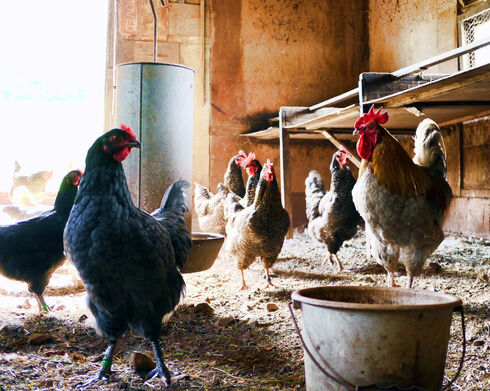
Bird virus could create equipment demand
3 November 2022

While the risk to human health is very low, another virus is spreading throughout the country.
Following an increase in the number of detections of avian influenza (bird flu) in wild birds and on commercial premises, the chief veterinary officers from England, Scotland and Wales last month declared an Avian Influenza Prevention Zone (AIPZ) across Great Britain to mitigate the risk of the disease spreading amongst poultry and captive birds.
This makes it a legal requirement for all bird keepers in to follow strict biosecurity measures. The introduction of the AIPZ comes after the UK has faced its largest ever outbreak of avian flu with over 200 cases confirmed since late October 2021 and a rise in cases recently.
It was also announced this week that mandatory housing measures for all poultry and captive birds will be introduced to all areas of England from Monday, 7 November, following a decision by the United Kingdom’s chief veterinary officer.
The housing measures legally require all bird keepers to keep their birds indoors and to follow stringent biosecurity measures to help protect their flocks from the disease, regardless of type or size.
The order will extend the mandatory housing measures already in force in the hot spot area of Suffolk, Norfolk and parts of Essex to the whole of England following an increase in the national risk of bird flu in wild birds to very high.
The chief veterinary officer is now encouraging all bird keepers across England to prepare, including taking steps to safeguard animal welfare, consult vets and expand housing where necessary.
Chief veterinary officer Christine Middlemiss said: “We are now facing this year, the largest ever outbreak of bird flu and are seeing rapid escalation in the number of cases on commercial farms and in backyard birds across England. The risk of kept birds being exposed to disease has reached a point where it is now necessary for all birds to be housed until further notice.”
Keepers with more than 500 birds now need to restrict access for non-essential people on their sites, workers will need to change clothing and footwear before entering bird enclosures. Site vehicles will need to be cleaned and disinfected regularly to limit the risk of the disease spreading.
Backyard owners with smaller numbers of poultry including chickens, ducks and geese must also take steps to limit the risk of the disease spreading to their animals.
So could this create demand for a variety of hired equipment? Seddons Plant & Engineers, for example, is promoting the merits of its Taskman range of pressure washers for cleaning hen coops and other facilities.
And David Walke, director of pressure washer manufacturer Demon International, tells me that the company makes an attachment that fits on to any of its towed or mobile bowser washers for applying sanitising agents to surfaces.
The Department for Environment, Food & Rural Affairs points out the need to reduce any existing contamination by cleansing and disinfecting concrete areas, as well as all vehicles that have been transporting poultry and poultry products, as well as by-products, after each journey, ensuring that the wheels, wheel arches, and foot wells in vehicles are cleaned.
It states that pressure washers, brushes, hoses, water and fresh supplies of a government approved disinfectant should be available at all points where people should use them on entering and leaving a site.
Hand-washing, sanitisation facilities and PPE should also be provided for use by staff and all visitors, including contractors and trade personnel. It is also important to keep farm access routes, parking areas, yards, areas around buildings and storage areas clean and well maintained, it says.
The UK Health Security Agency (UKHSA) advises that the risk to public health from the virus is very low and the Food Standards Agency advises that avian influenzas pose a very low food safety risk for consumers. Properly cooked poultry and poultry products, including eggs, are safe to eat.
The avian influenza prevention zone will be in place until further notice and will be kept under regular review by the government.
Photo: Brett Jordan

